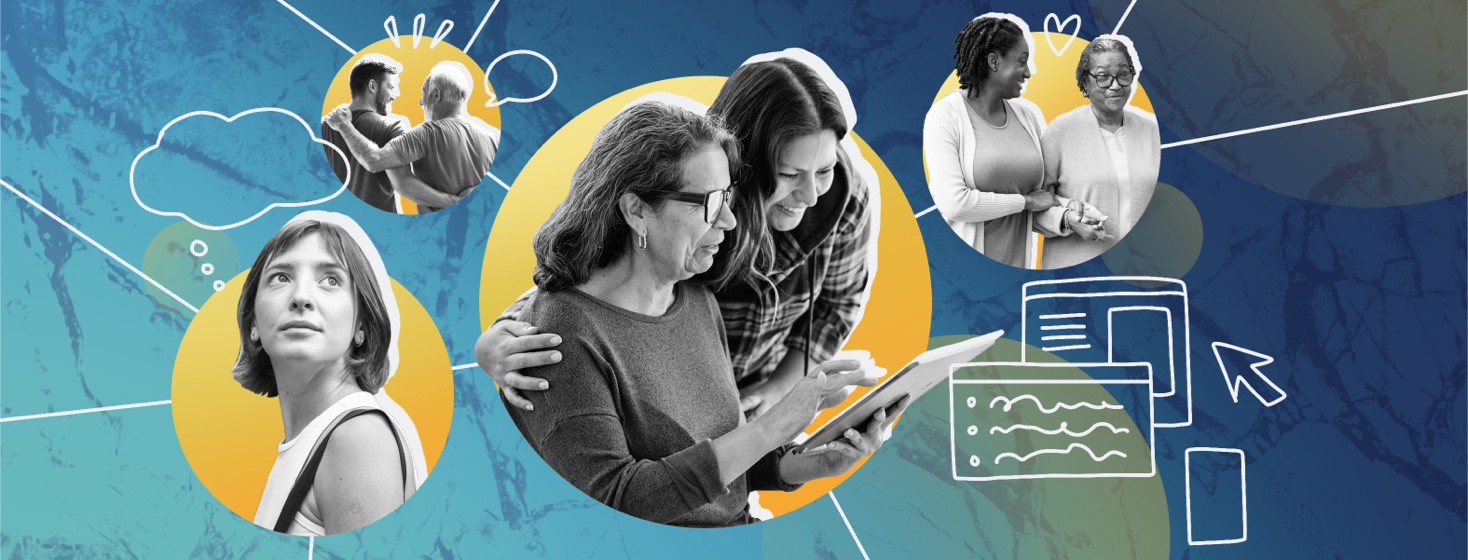Resources for Cancer Caregivers
When your loved one has cancer, you, the caregiver, need help too. The type and frequency of help that's needed can vary dramatically from person to person, but extra support for the caregiver is a must.
The nonprofit Cancer Support Community surveyed its members and found that these were the caregiving tasks they most often performed:1
- 98 percent provided emotional support
- 96 percent went with their loved one to medical appointments
- 82 percent helped with decision-making
- 79 percent coordinated medical care
- 80 percent provided transportation
- 74 percent helped manage finances
To help you find the support you need, SocialHealthNetwork.com put together some resources for you, the caregiver of a person with cancer. Caregiving can be challenging, but you don’t have to do it alone. Here are a few suggestions for finding the services and help you need to make this journey more manageable.
The treatment team
Many cancer treatment teams include a nurse, patient navigator or social worker who specializes in answering patient and caregiver questions. If you have questions about services or need extra support, these members of the treatment team are often excellent resources for finding practical help specific to your community and your person’s needs.
Because your treatment team works with so many patients, they will probably have recommendations for support groups, helpful services, and ideas that have worked for other caregivers.
Hospital apps
Many hospitals now have mobile apps designed specifically to support their cancer patients and their loved ones. What’s included in an app varies by hospital, but most include maps with wayfinding directions to help you move between the parking garage and the various locations for specialist appointments, radiation, testing and more.
The most robust apps let you download the overall treatment plan, use a calendar to keep track of appointments, access test results, and list medications and contact information for the treatment team.
Online support
Whether you are using an Apple or Android mobile device, an iPad or a desktop, there is an app, podcast or web site designed to help you with cancer caregiving. Here are a just a few examples:2-8
- Medication regimens for cancer can be complicated. If you are worried your person isn’t taking their drugs properly, the MediSafe app can help. It lists all the drugs and sends your loved one personalized reminders when it is time to take the next dose. It also sends caregivers real-time missed medication alerts.
- Podcasts can provide a wealth of information to help you better understand your loved one’s cancer, how you can help them, and find the extra support you need as a caregiver. Cancer.net, Frankly Speaking About Cancer, and CancerCare all examine various aspects of caregiving, including the most important, self-care.
- Associations such as the American Society of Clinical Oncology and American Cancer Society support online communities where caregivers can ask questions and offer one another support.
- Websites like Caring Bridge and PostHope allow you to create individual websites where you can share updates about your loved one and coordinate help from friends and family.
Help with long distance caregiving
Today’s family and friends often live far apart from one another, so long-distance caregiving is a reality for many. The good news is that a wealth of advice, services and apps are available to help long-distance caregivers with everything from communications to transportation to laundry. Here are just a few:9-12
- If you aren’t able to drive your loved one yourself, you can order an Uber or Lyft through GoGoGrandparent.com for a small additional fee. The service allows you to schedule rides for regular appointments and will text you when your loved one is picked up and dropped off.
- Lotsa Helping Hands and Caring Village help you coordinate and communicate with local helpers and the treatment team. These apps allow you to group message others to ask for help with transportation, meal delivery, errands, and companionship, and lets them provide feedback on how your person is doing. Caring Village also lets you store important documents and medication lists.
- Meals On Wheels can be an excellent resource for nutritious food, transportation, pet care, and medical equipment if your loved one is 60 or older. Cost is based on what you can afford to pay. Also, if you search online for “meal delivery for cancer patients” you will see several more expensive services.
- If your person needs help with a complex medication regimen, an automated pill dispenser may provide the answer. These dispensers can be loaded with medications weekly or monthly and programmed to open and dispense drugs at a set day and time.
Recharging your caregiving batteries
Recognizing the vital role that caregivers play in a cancer patient’s life, a host of national organizations offer online and in-person support. These resources include:13-16
- Cancer Support Community offers an excellent booklet on caregiving from a distance with practical tips for all aspects of taking care of someone with cancer.
- Family Caregiver Alliance hosts a state-by-state database to help caregivers locate public, nonprofit, and private programs and services in all 50 states.
- The National Cancer Institute (NCI) offers many suggestions to help caregivers. The NCI also publishes a free caregiver booklet.
Remember, caring for someone with cancer does not mean that you must do it alone. These are just a few of the resources you can and should call on to help you manage your loved one’s care.

Join the conversation